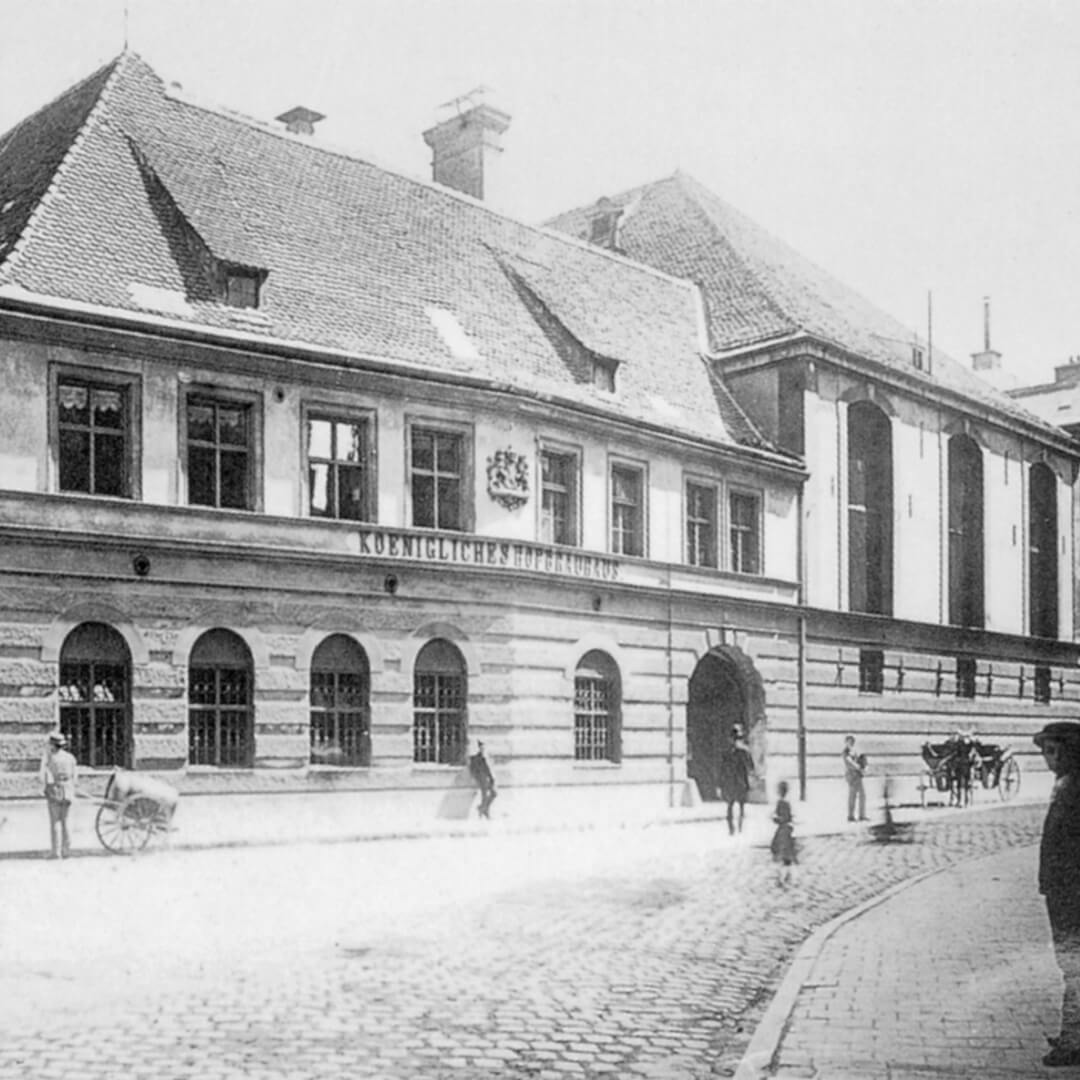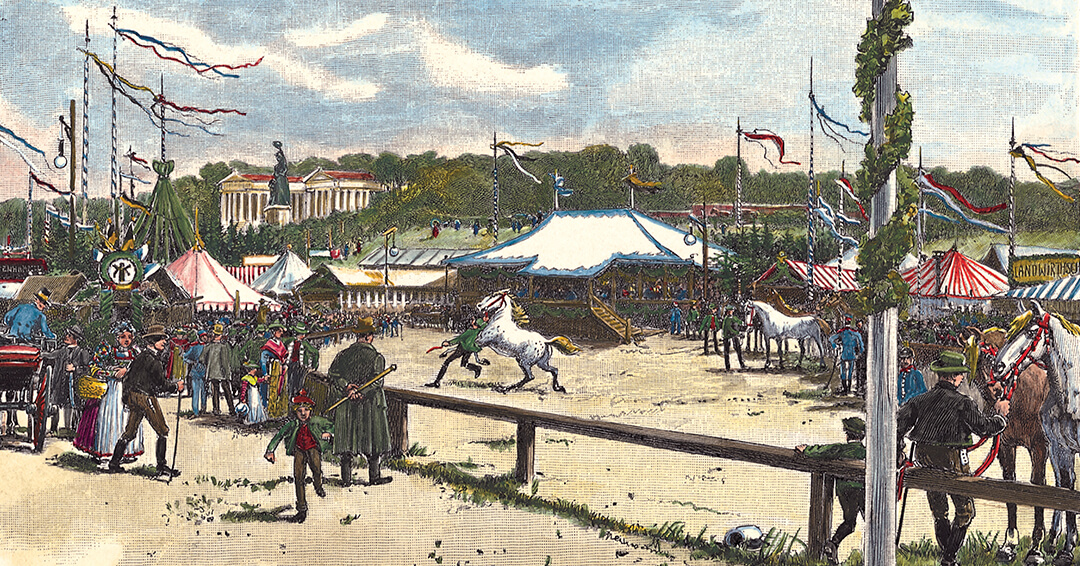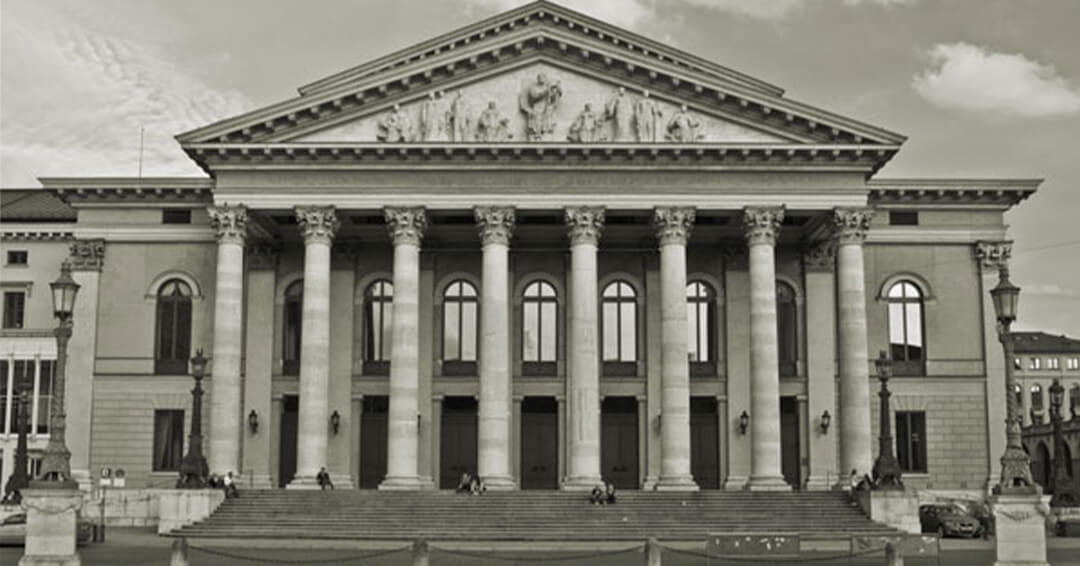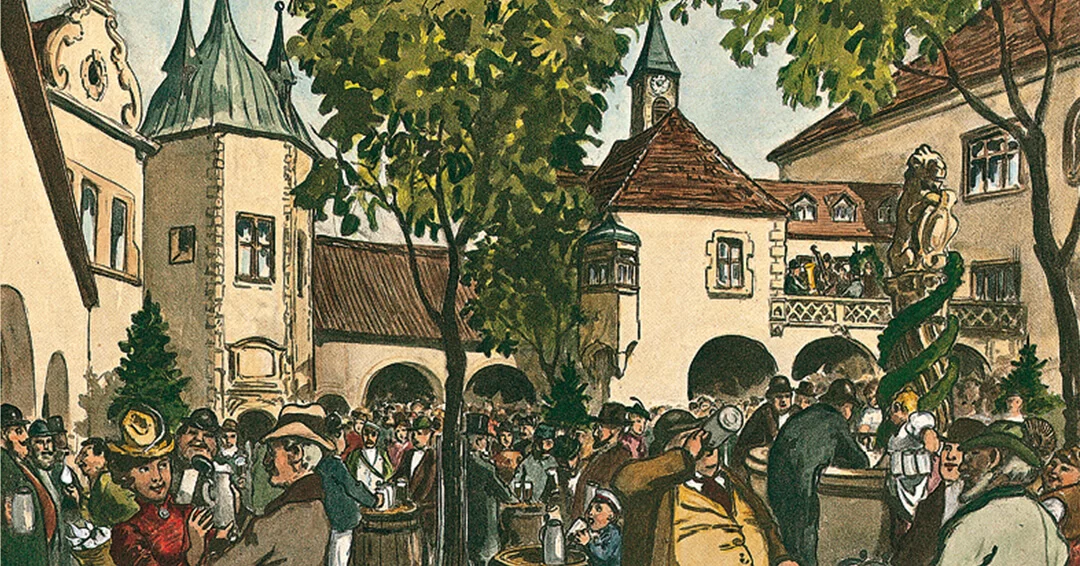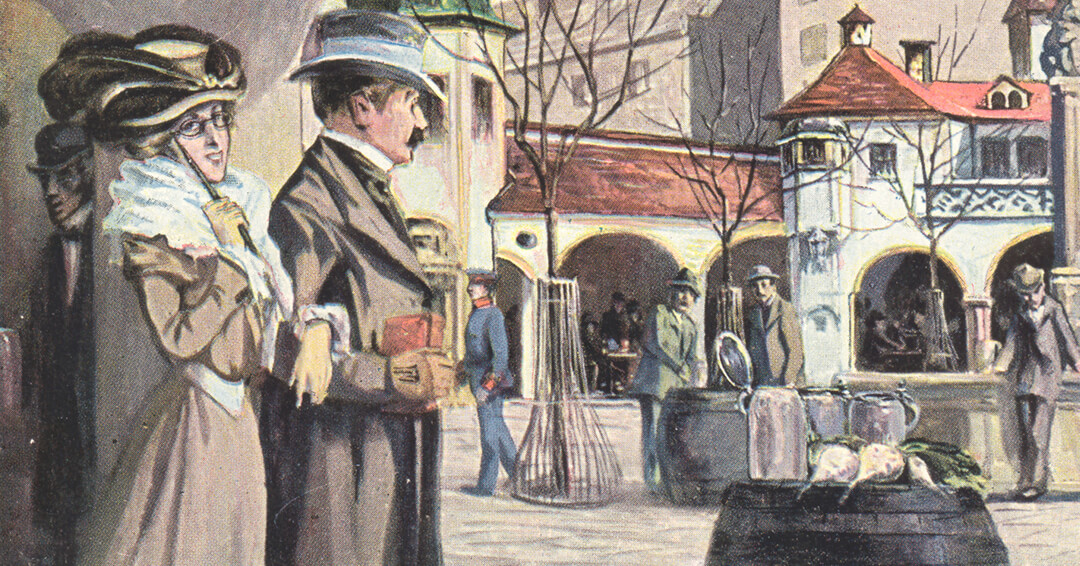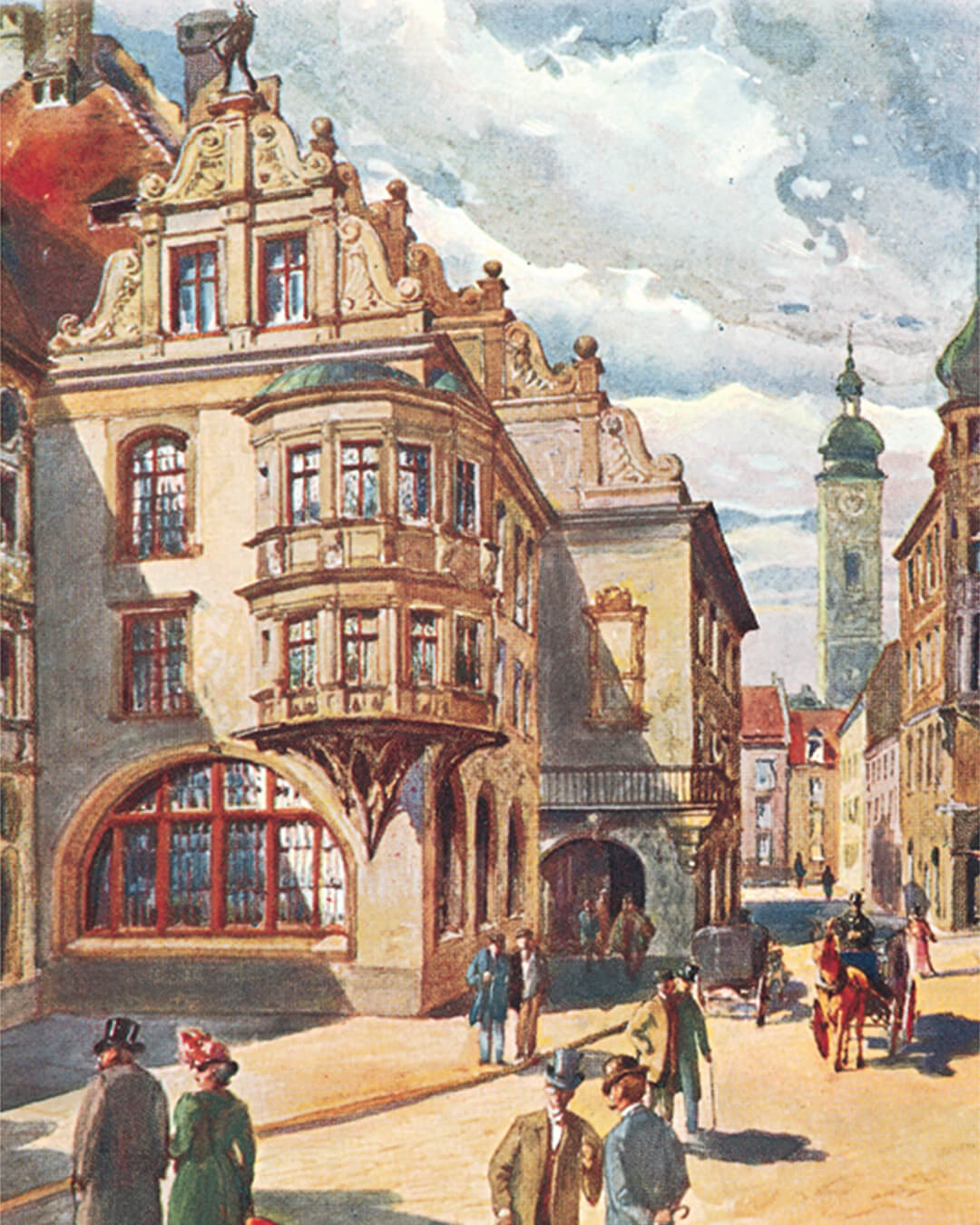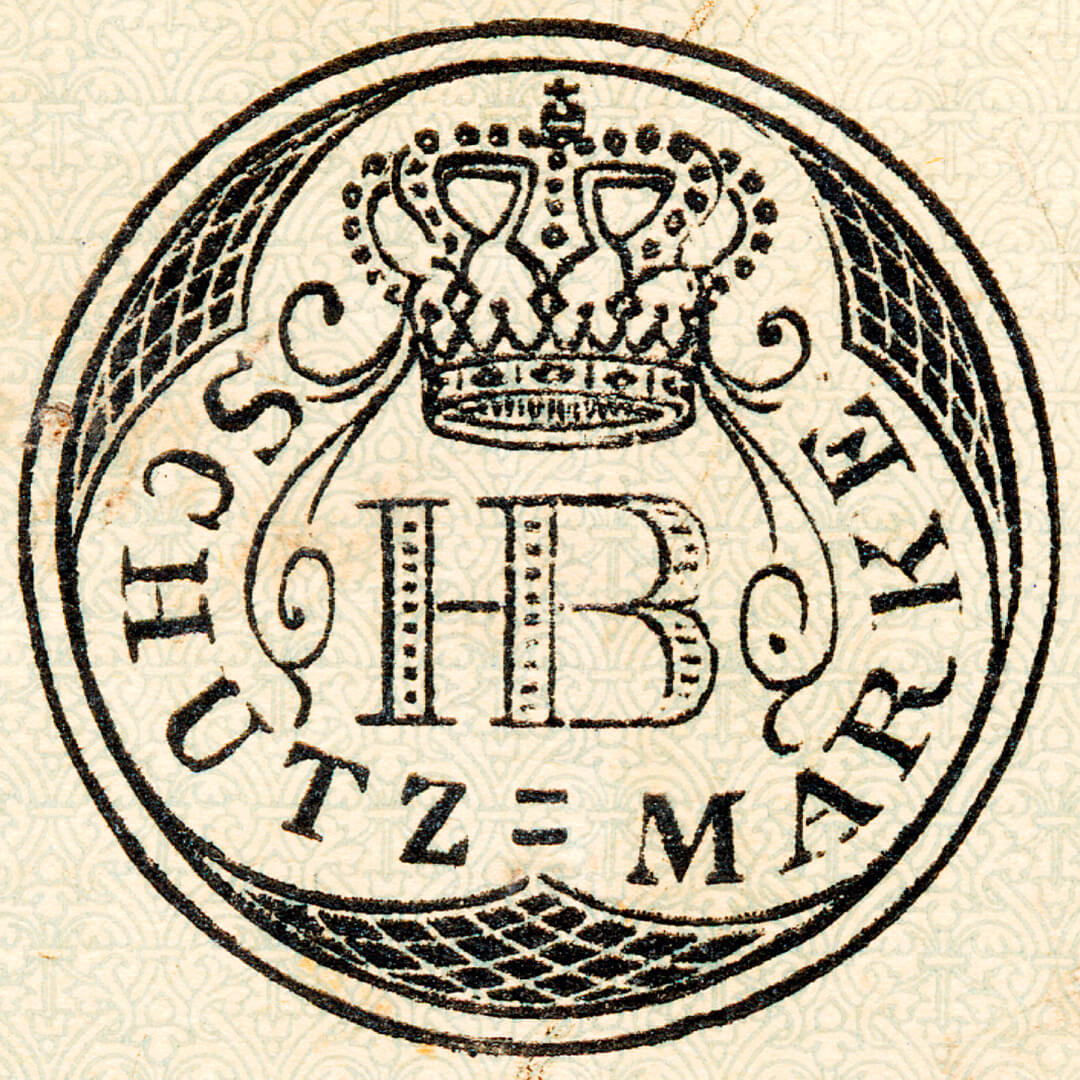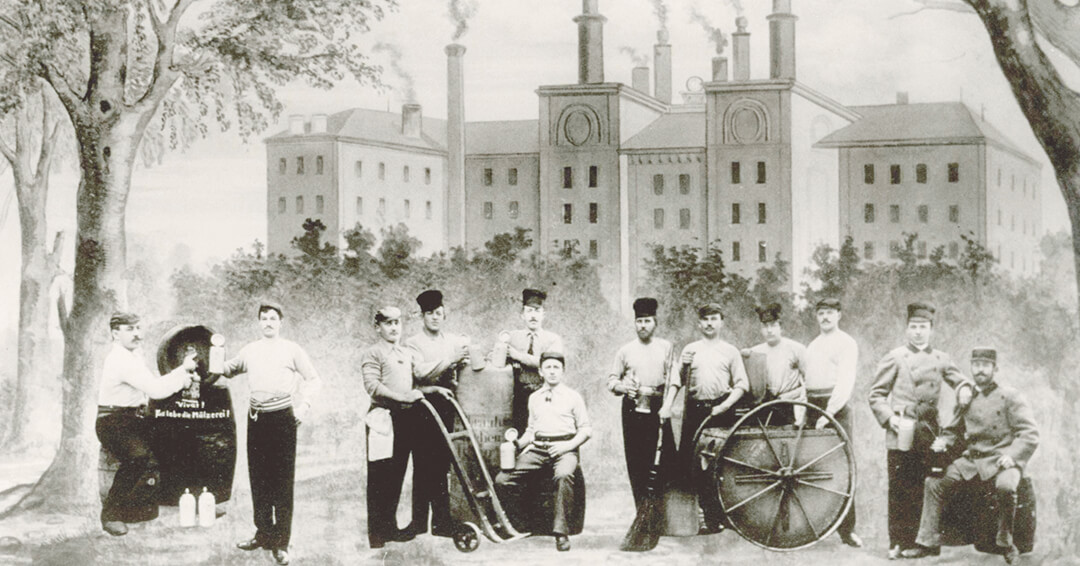1806 Hofbräuhaus turns Royal
The Kingdom of Bavaria forms. Maximilian I Joseph assumes the Bavarian throne. A political change with consequences for the tradition of the Hofbräuhaus: It is turned from the Ducal into the Royal Hofbräuhaus.
1810 Munich celebrates its first Oktoberfest
It all started with a wedding! On October 12, 1810, Crown Prince Ludwig of Bavaria marries his fiancée Therese von Sachsen-Hildburghausen. His father, King Maximilian spared no expenses. The wedding celebration turns into a party for the folk, providing for over 40,000 visitors, horse races included! They decided to hold that celebration every year and to name the meadow it took place after Therese, hence it’s called the “Theresienwiese” until today. The Hofbräu beer for the Oktoberfest follows two years later.
1823 Hofbräu Beer saves Munich once again
In a memorable January night King Maximilian orders to fight the flames of the burning National Theater with beer barrels from the nearby Hofbräuhaus. The fire was contained. Turns out Hofbräu Beer not only quenches thirst or frees Munich from the Swedish invasion but also saves the city from burning down!
1828 Hofbräuhaus hosts the Public
King Ludwig I officially approves the public serving, issuing a decree that grants a license for the beer as well as food to be served to “ordinary citizens” at the Hofbräuhaus. Quite in the interest of his subjects! Thus, even simple citizens are now able to enjoy the Hofbräu beer. The Hofbräuhaus am Platzl hosts its first guests and with that the most famous tavern in the world was born..
1844 Ludwig I lowers Beer Price
A philanthropist throughout! King Ludwig I wants to give “the working class and the military […] the opportunity to afford a healthy and inexpensive drink.” A liter of Hofbräu beer now only costs 5 crowns instead of the usual 6½. The result: beer sales go up so sharply that the barley juice inventories partially run out of stock.
1852 Hofbräuhaus as Property of the Bavarian State
Success is a double-edged sword: Munich’s private brewers and innkeepers fear for their existence because of the increasingly popular Hofbräuhaus. As King Maximilian II thinks about privatizing the brewery, his people revolt. The solution: The Hofbräuhaus becomes the state property of Bavaria.
1879 Registered Trademark
Caution, forgery! The intertwined letters “HB” with the crown are often and gladly copied. In order to protect the world-famous signet of the Munich Hofbräuhaus, brewery Director Johann Nepomuk Staubwasser enters it as a trademark and registers it solely for the “company of the Royal Hofbräuhaus in Munich”.
1896 A new Brewery
Space shortage was an issue and eventually the brewery couldn’t stay under the same roof as the tavern forever. Thus, a new brewery was established on the Innere Wiener Straße, which is known as the “Hofbräukeller” today, one of Munich’s most famous tavern and beer garden.
1897 Hofbräuhaus Renovations
The Hofbräuhaus is becoming more and more a point of attraction for tourists. The Royal Building Authority therefore decides to convert the building into a modern restaurant at the Platzl after the brewery moved out. Under the direction of architect Max Littmann, the historical beer hall on the ground floor, as well as a private restaurant area are created.
